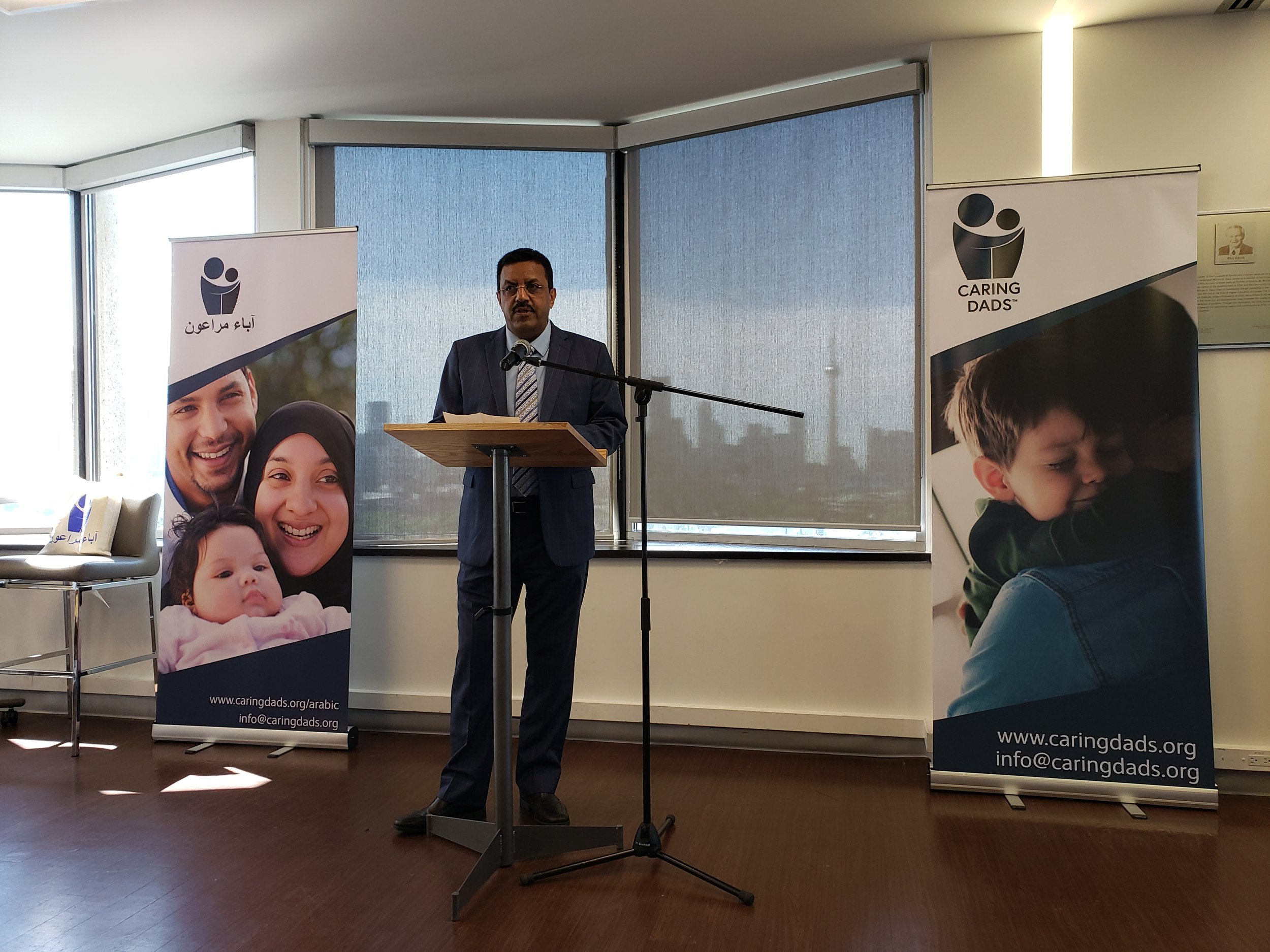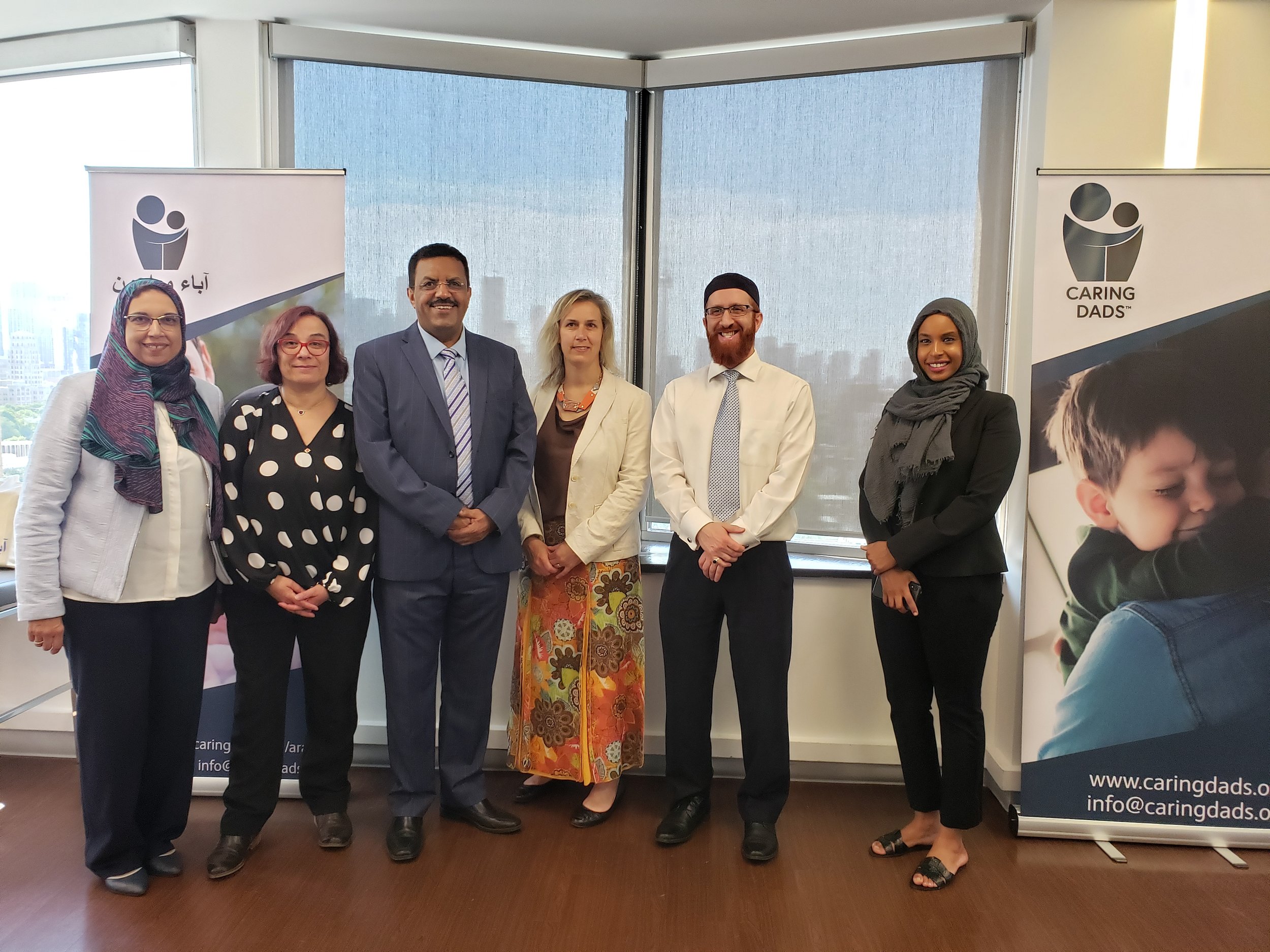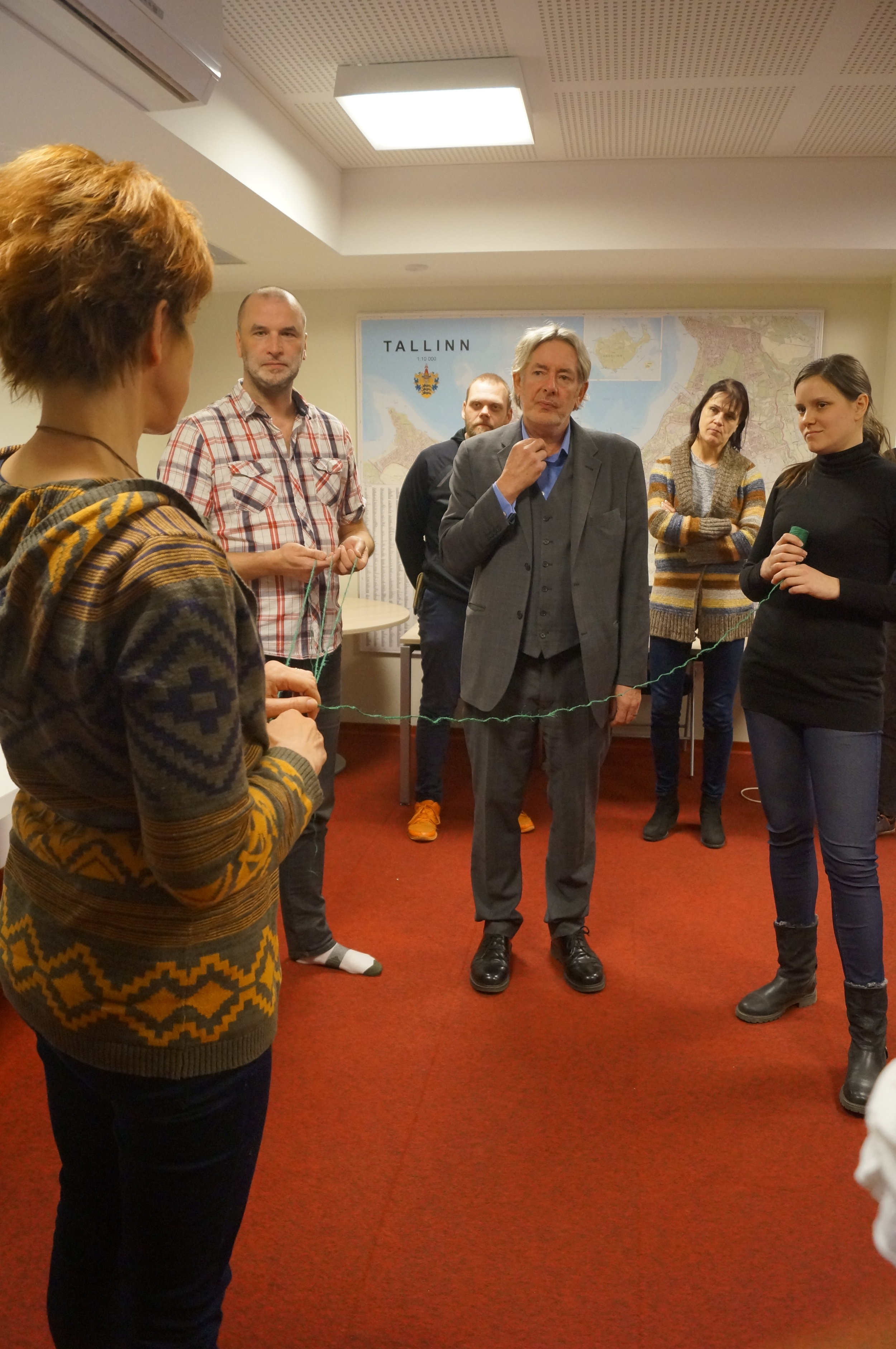Over the past 17 years, as the program has grown and developed (it is now running across Canada, along with a quarter of States in the U.S., the U.K., Sweden, the Netherlands, Japan and most of Australia), numerous studies have been done on its effectiveness in helping change the behaviour of abusive men.
Kelly noted a recent five- year study of Caring Dads done by the national child protection agency in the U.K. (The National Society for the Prevention of Cruelty to Children or NSPCC) found that one of the major outcomes was a reduction in harm toward children over time, along with a reduction in hostility toward the child’s mother.
Another study by the Canadian Child Welfare Institute and Dr. Scott found there was a reduction in hostility toward family support workers by fathers who participated in the Caring Dads program.
“The other pretty common piece of this for men who are perpetrators is isolation, so part of what we are targeting is breaking through isolation, encouraging health-seeking behaviour,” said Judie Powell, a social worker with Children’s Aid Society in Toronto, who conducted the GA training with Kelly.
Powell said, similar to the study by the Child Welfare Institute, in her work as a facilitator, she sees many fathers she works with start to develop a relationship with their workers, where none existed before.
“A lot of these fathers would say, ‘Well, who is my worker?’ And we’d say, ‘Well, it’s the same worker for your children or the mother of your children.’ And they’d say, ‘Well, who’s supposed to be sticking up for me?’” said Powell.
“So it’s really hard to see that you are still part of that constellation though now you may be separated due to criminal conditions or court orders, it’s still your family worker . ”
She said it’s crucial for fathers to learn that they still have a needed function in the family—“we just need to make that function more positive.”
Throughout the time fathers are participating in Caring Dads, said Kelly, facilitators are working on creating stability for fathers, and not just emotional stability. They outsource assistance to provide fathers with stable housing, client services, identifying mental health issues and finding them counselling.
Another goal of the 17-week program is to teach fathers about managing their behaviour. “What we find one of the common threads of the men we work with is a hostile attribution of a child’s behaviour – for example, say- ing ‘A child is doing this or that to get me,’” said Kelly. “We really work to rattle that sort of idea. So by the end of the program they are involved with the children and figuring out what are their child’s needs,” he said.
It also teaches fathers that “your kids are always listening, your kids are always watching, even when you thought they were asleep. That really changes things. They become more aware of their actions and how their actions affect their wives and children,” said Kelly.
Kelly noted that over the years he has been running the program, he has found that for facilitators, it’s important to be very clear and honest with the fathers, because sometimes what they are going through is overwhelming. “If we go to a dad and say you are a risk to your children, he starts hearing ringing in his ears and nothing else. We need to be really clear.”
He said that means giving fathers simple, attainable goals to reach, such as not calling your child stupid. If they are attained, that provides the father with a list of things that are evidence that he is changing his behaviour.
Powell said in her own experience, the number of fathers who return to the system after completing Caring Dads is extremely low. She has trained about 50 men, and only two have ended up with a new charge relating to domestic violence.
Kelly said he recognizes that those involved in facilitator training, and the workers who will eventually be working with fathers in Caring Dads, must undergo a shift in thinking.
“What we are asking in a child welfare setting is for workers to work differently. That becomes pretty disruptive to people,” he said. While many workers are comfortable doing things the way they have always done them, which is, to remove the father from the family’s lives, “that doesn’t stop him from starting new families.”
Another important aspect to facilitator training, said Powell, is to be cognizant of the overrepresentation of the populations being served. Thus, during the GA training, discussions were held while taking into consideration the overrepresentation of Indigenous children in the Manitoba child welfare system.




















































